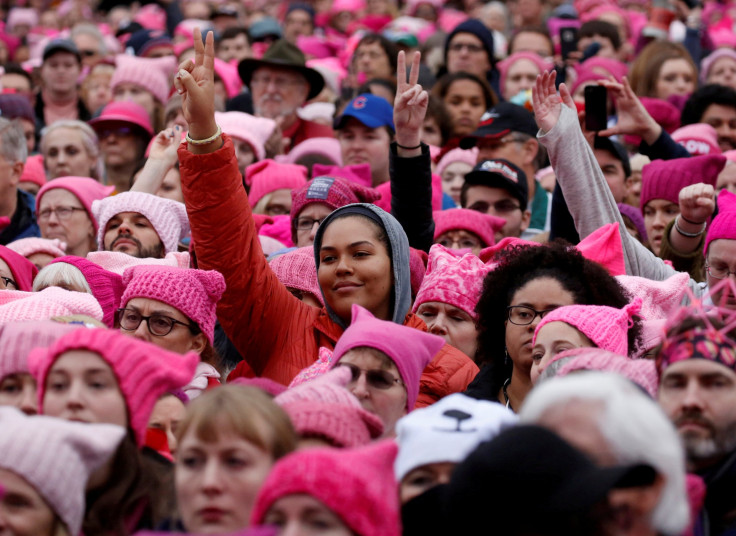Countries Are Behind On Gender Equality This International Women’s Day

This year marks the 25th anniversary of The Beijing Platform for Action when countries signed up to the most progressive blueprint ever for advancing women’s rights. As we celebrate International Women’s Day on Sunday, the reality is that the world has a long way to go on gender equality.
Discrimination against women and girls is a problem that persists in every region of the world and in rich and poor countries alike.
Last week António Guterres, leader of the United Nations described gender inequality as not only wrong but also stupid. And yet, research shows that no country has achieved gender equality.
At the same time, in many countries and contexts around the world there are also signs of hope.
Substantial progress has been made over recent decades, even in some of the least developed countries, to ensure girls finish primary school.
Sweden in 2014, Canada in 2017, France and Luxembourg in 2019, and now Mexico in 2020 have committed to putting in place feminist foreign policies.
A growing list of countries like Canada, Rwanda, Ethiopia, South Africa, and France have committed to ensuring that women fill half of the roles in their Government’s Cabinet.
So, what is the overall verdict? Is the world making progress towards gender equality? For International Women’s Day, data on five vital gender equality issues across 129 countries tell the story on where we are with access to contraception, girls’ education, political leadership, workplace equality laws, and safety.
Alarmingly, if the current pace continues, 67 countries – home to 2.1 billion girls and women – will not achieve any of the five gender equality targets by 2030. The other concerning statistic is that more than a third of countries are moving slowly, or even in the wrong direction, on at least four of the five issues
The 67 countries at risk of missing all five of these targets include countries from across the world and at all levels of economic development. In fact, if trends over the past 10-20 years continue, the United States will be one of the countries that won’t meet any of the five targets by 2030.
However the data also reveal some positive surprises. When looking behind the global averages, there are examples of countries making very rapid progress on the five issues. Astonishingly fast in some cases.
For example, in Rwanda, access to contraception only covered 12 percent of girls and women in 2000, but jumped to 69 percent in 2018. In Ghana the percentage of girls who completed secondary school grew from just 5 percent in 2003 to over 40 percent 12 years later.
Several countries have made rapid progress on having women represented in Cabinet positions. For instance, Uruguay went from having no women Ministers to having 42 percent of Ministers being women in less than 15 years, Canada went from 30 percent women Ministers to 50 percent in four years. Finally, Ethiopia went from only 10 percent to 48 percent women in just one year.
If every country followed the pace of fast-moving countries, three quarters of girls and women could be living in countries that had met four or even all five of these key targets by 2030.
By making the changes in laws, policies and budget decisions needed to reach these key gender equality targets by 2030, countries would ensure that 400 million more girls and women would have access to contraception to plan if and when they have children and 85 million more girls would complete secondary education than if the current pace continues.
When it comes to gender equality, the world is not short of vision or promises. Nearly all the world’s countries committed to making it a reality by 2030 when they signed up to the Sustainable Development Goals. And it’s been a quarter of a century since nearly all the world’s countries signed up to the Beijing Platform for Action. It’s time for countries to pick up the pace and look hard at whether they are moving in the right direction on gender equality and at why they aren’t moving faster.
Governments must announce their commitments publicly and loudly at the Generation Equality Forum planned to take place in Paris this July. By doing so they will help bend the curve of progress towards a gender-equal world. A world that, evidence shows us, would be healthier, wealthier, more productive, more peaceful, and more just.
Alison Holder is Director of Equal Measures 2030, a Coalition of organizations that includes The Bill & Melinda Gates Foundation, ONE Campaign, PLAN International & Women Deliver
© Copyright IBTimes 2025. All rights reserved.





















